 Petzlover
Petzlover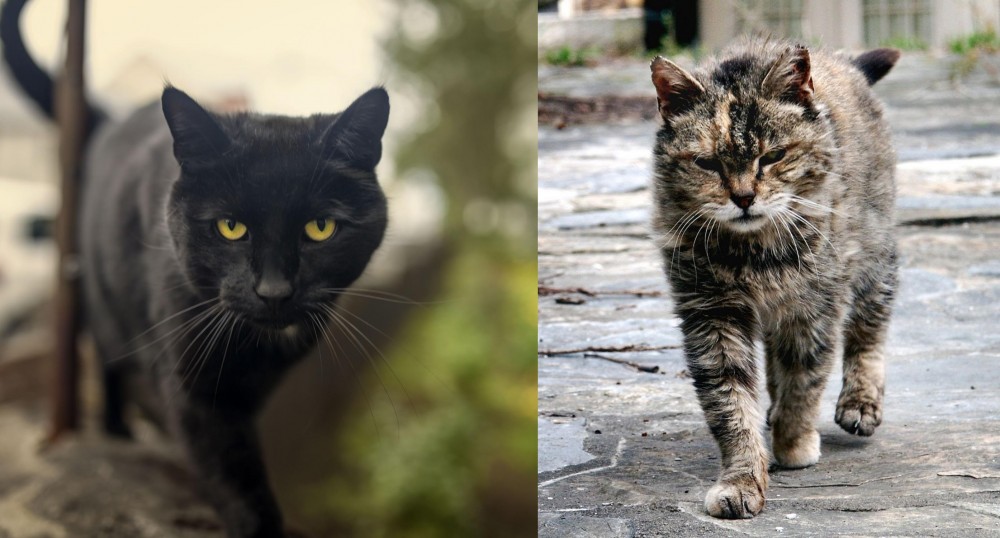 Both Bombay and Farm Cat are originated from United States. Both Bombay and Farm Cat are having almost same weight. Both Bombay and Farm Cat has same life span. Both Bombay and Farm Cat has same litter size. Bombay requires Low Maintenance. But Farm Cat requires Moderate Maintenance
Both Bombay and Farm Cat are originated from United States. Both Bombay and Farm Cat are having almost same weight. Both Bombay and Farm Cat has same life span. Both Bombay and Farm Cat has same litter size. Bombay requires Low Maintenance. But Farm Cat requires Moderate Maintenance
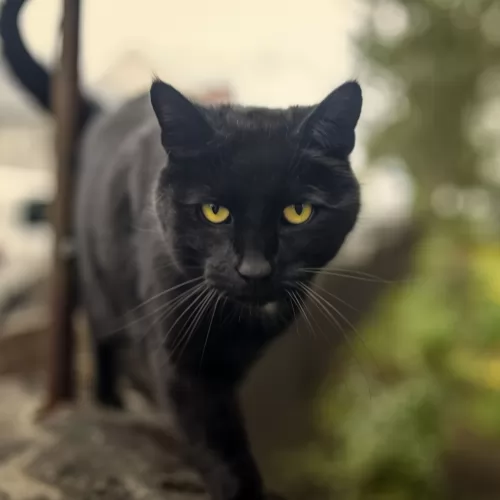 The Bombay cat was developed by breeding black American Shorthair cats and sable Burmese cats to bring about a sleek panther-like cat.
The Bombay cat was developed by breeding black American Shorthair cats and sable Burmese cats to bring about a sleek panther-like cat.
Cats of the Asian group are given the name Bombay cats. It is also known as the Black Mamba or mini-panther. In fact the Bombay cat was developed by Nikki Horner, a breeder from Kentucky, USA.
In 1976 the Bombay cat was successfully bred and was recognized and registered by the Cat Fanciers' Association in 1970 and also the International Cat Association.
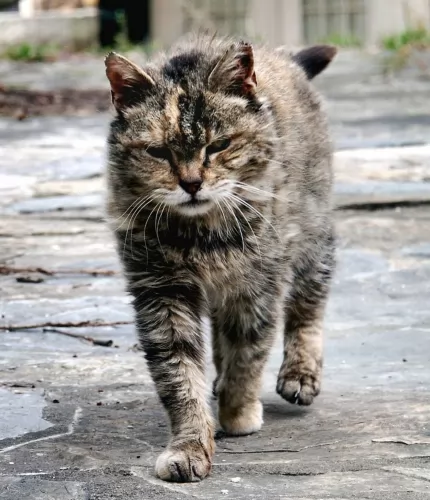 Known also as the Barn Cat, this domestic cat is of a mixed breed. The very name ‘farm cat’ is referring to a general kind of cat that lives in an almost wild state on farms and agricultural properties.
Known also as the Barn Cat, this domestic cat is of a mixed breed. The very name ‘farm cat’ is referring to a general kind of cat that lives in an almost wild state on farms and agricultural properties.
Possibly, their role in keeping rodents at bay was how they came about – domesticated to keep rodents away from grain crops.
When you do research you find that there is archeological evidence to suggests that these farm cats have been around since about 7500 BC. Most barn cats fall under the domestic shorthair or domestic longhair categories.
These cats live in a variety of conditions and some of them get their food solely from the rodents they catch. Others are tame with access to supplemental cat food as well as veterinary care.
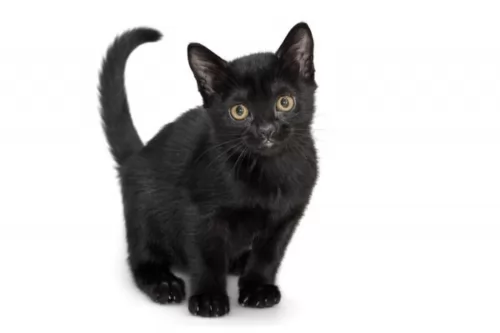 As a short-haired cat, the Bombay is related to the Burmese cat. It’s a medium-sized cat, muscular, lithe, and agile – like a black panther.
As a short-haired cat, the Bombay is related to the Burmese cat. It’s a medium-sized cat, muscular, lithe, and agile – like a black panther.
The cat weighs anything between 3 to 7kg. It is a stocky, compact cat with a round head and ears that are fairly rounded at the tips. The coat of the Bombay is short and glossy. In fact, it is the pitch-black short, close-lying shiny coat of the Bombay cat that makes it so distinctive and that with its green or copper-colored eyes. The cat’s nose as well as the pads of their paws, are also black
Bombay cats are very social, getting on well with all their human family members. They’re affectionate and like to demand attention from their humans.
They’re typical cats in many ways and are curious and alert. You wouldn’t describe the Bombay as an independent cat breed, although the older ones do become more independent as they mature but they are cats that dislike being left alone for long periods of time.
They are however adaptable to different lifestyles and can easily learn new tricks. They’re intelligent cats and will need toys that make him think. He always loves to play with the toys close to his human owner and has quite a loud meow and purr to voice his feelings
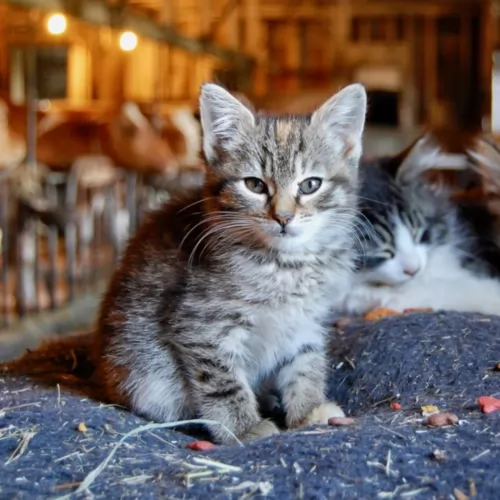 Farms cats are also members of domestic cats but it’s just that they are usually not socialized and they run away from people.
Farms cats are also members of domestic cats but it’s just that they are usually not socialized and they run away from people.
Farm cats have different histories and there is really no one-size-fits-all description of them.
They can weigh anything from 2 to 8kg. They can live to be anything between 10 and 20 years of age. Some of them are large, some small, some are solid colored while others are bi-colored and patterned. Their coats differ too and you can find short- and long-haired varieties among your farm cats
Their eyes and ears will also be in any shades and sizes and these cats are usually not spayed or neutered and can produce kittens that nobody is sure how they’ll turn out.
If you were to stumble across a farm cat born of unknown parents, there is no knowing what the small feline will behave like. Socialization and lifestyle play a big role in determining how a kitten will turn out but farm cats left to their own devices could be quiet, aggressive, loving, naughty, reticent, reserved, playful, lazy, shy or nervous.
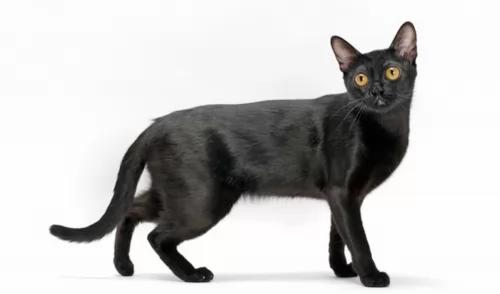 These sleek panther-like cats are a perfect choice if you want a cat that loves its human family.
These sleek panther-like cats are a perfect choice if you want a cat that loves its human family.
Every cat has got their peculiarities and these Bombay cats like heat – you’ll always find them curled up close to the fire or heaters. On a sunny day they’ll want to be outside soaking up the warmth.
Provide your Bombay with all the things he loves and he is guaranteed to make you the most awesome feline companion.
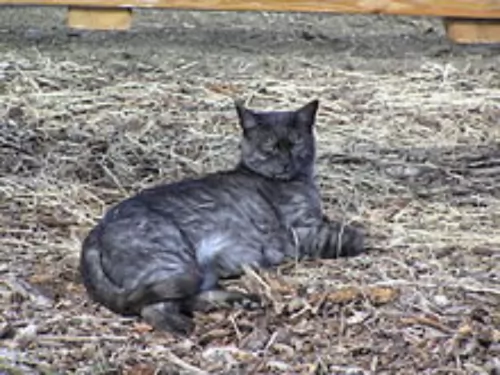 Farm cats are such wonderful animals – they just need a good chance in life like other domestic cats.
Farm cats are such wonderful animals – they just need a good chance in life like other domestic cats.
Many of them have had a hard life and it can be marvelous to open your home and heart to one or two of them and see the pleasure they bring.
They’re full of character and if you provide them with good food and a warm bed and promise to love them, you’ll no doubt be starting a solid and meaningful friendship that can enhance your life.
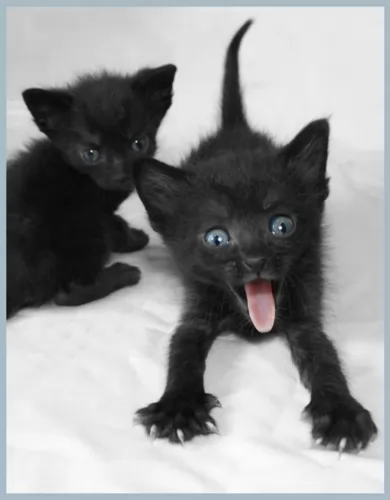 With good care these amazing cats can live to be between 15 and 20 years of age. Your Bombay, just like with other pets, can have any one of the health problems that cats are known for.
With good care these amazing cats can live to be between 15 and 20 years of age. Your Bombay, just like with other pets, can have any one of the health problems that cats are known for.
One of these diseases is craniofacial defect where there is a deformity of the head. Kittens with this deformity are always euthanized.
Vomiting is a sign that all is not well with your cat. Vomiting is actually a common problem with cats and is indicative of a number of causes. It could mean your cat has eaten something inedible, it could mean an infection or even a urinary tract problem.
Remember that ongoing vomiting can lead to dehydration so if your cat continues you must get him to the vet as soon as possible.
Feline Lower Urinary Tract Disease for instance can affect both your male or female cat. There are a number of causes of which stress and being overweight are just two.
You’ll notice your cat battling to urinate, blood in the urine, lack of appetite, restless and licking around the urinary area because of pain. Certainly, this is one reason you want to get your beloved cat to the vet.
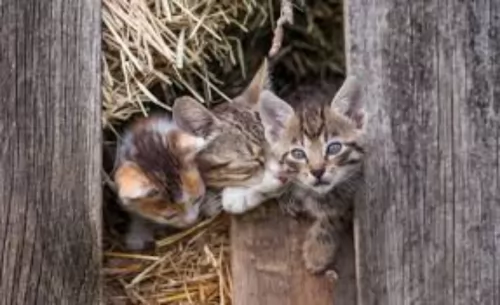 Farm cats left to fend for themselves can suffer from a host of illnesses. Eye infections are one. The cause of these eye infections is usually a virus, of which herpes, chlamydia, and Calicivirus are the most common.
Farm cats left to fend for themselves can suffer from a host of illnesses. Eye infections are one. The cause of these eye infections is usually a virus, of which herpes, chlamydia, and Calicivirus are the most common.
Your vet will certainly prescribe you some antibiotics for your kitten to help against secondary infections.
Check your farm kitten over as he is likely to have a nose full of snot as well and may even be sneezing. Take the kitten to the vet who can give him a good once-over and put him on the road to recovery.
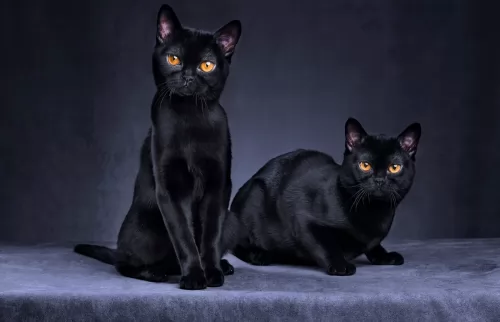 The Bombay isn’t a heavy shedder and requires very little grooming.
The Bombay isn’t a heavy shedder and requires very little grooming.
Provide your Bombay with the right kind of nutrition so that it has every chance to be strong and healthy. Cats are carnivores and you want to be sure that he gets the best food. Make sure that he gets home-made or commercially manufactured cat food that is high in meat protein. Do research or check with your vet to make sure he is being fed the best food there is for his age and activity levels.
Your Bombay requires a constant source of fresh, cool water night and day.
Check inside his mouth from time to time to ensure there are no rotting teeth causing him pain and discomfort. Also, check inside the ears ad make sure they aren’t red which could indicate an infection.
Always get your pet to the vet immediately you suspect that something is wrong.
Keep your cat’s litter box spotlessly clean.
Neuter or spay your Bombay cat to prevent unwanted kittens.Spaying and neuterings as some very beneficial health advantages for your furry friend as well.
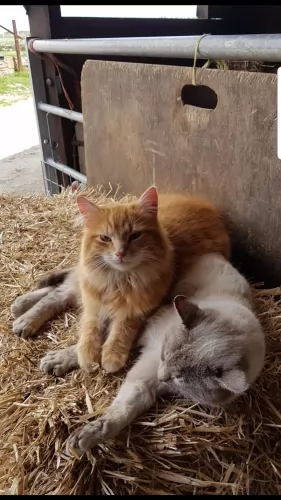 Barn cats or farm cats are not likely to have been neutered or spayed and they are just adding to the overpopulation of farm cats that can become feral cats.
Barn cats or farm cats are not likely to have been neutered or spayed and they are just adding to the overpopulation of farm cats that can become feral cats.
The average fertile cat can produce three litters every year, and with as many as 6 kittens in a litter, you can imagine how a small colony of cats can get out of control.
Sometimes cat rescue programs do a steri-drive and spay and neuter cats like this to curb the numbers. Of course, spaying and neutering can prevent many diseases as well.
If you have farm cats that have been spayed or neutered, provide them with good food and water. You can put out wet, canned cat food or dry kibble – they’ll be so pleased as most times these cats don’t even know where their next meal will come from.
You see them drinking out of puddles of water. Unfortunately, these pools are often filled with contaminants and this can also make the cats sick.
Every cat just wants a soft, warm place to sleep, and if you can, provide some warm dry hay for these farm cats. Even a cardboard box can be a haven for a cat that has never known a bed.
If you have managed to catch a farm cat kitten and you want to offer it a home, make sure to start off with veterinary care and vaccines.